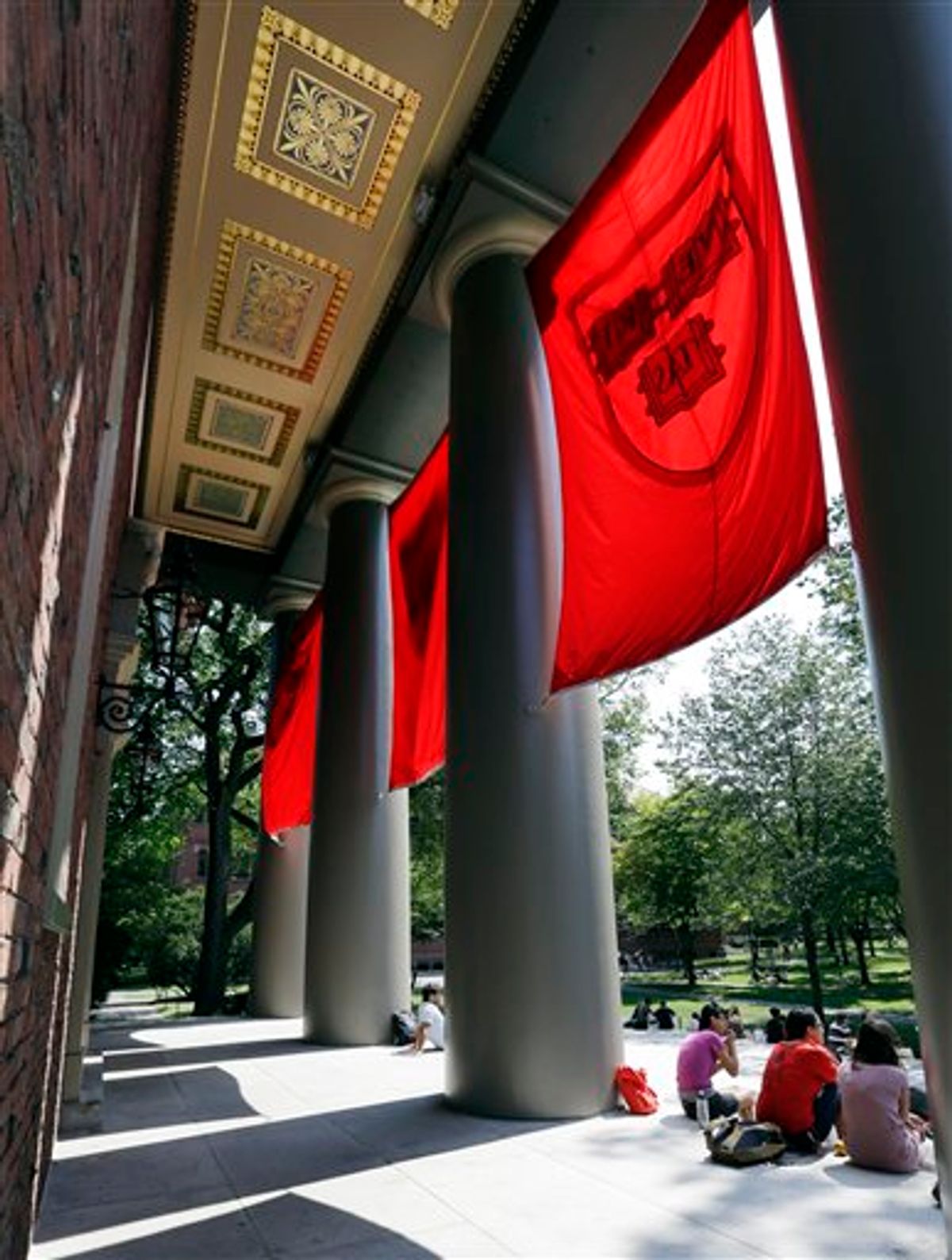It’s a new school year in Cambridge, Mass. Sculls skip across the choppy Charles, coy freshmen size each other up, pretending they belong, and scores of Harvard students and recent graduates are implicated in an academic scandal on a scale that dean of undergraduate education Jay Harris called “unprecedented in anyone’s living memory."
Almost half of the 279 students who took assistant professor Matthew Platt’s Introduction to Congress class in the spring are under investigation for cheating. According to a letter to students from Harris, the charges are “academic dishonesty, ranging from inappropriate collaboration to outright plagiarism, on a take-home final exam.” (The university has not acknowledged the specific class.)
One senior who’s under investigation, and who spoke to Salon only on condition of anonymity, said that the scandal was a crackdown on a course that has a reputation for being easy. The course had a “culture” in which collaboration was “fostered, encouraged, expected.” Students were encouraged to treat exams like “problem sets,” which the student understands to allow collaboration. “The bubble burst this year and we’re being scapegoated."
In an email the student wrote:
I can personally attest that my TF [teaching fellow] collaborated on every single exam with me. [The TF] pointed me in the right direction, gave me some answers, gave me some insights, and some quotes to use. Why? Because no one went to section or lecture. You didn't have to. Professor Platt said on the first day of the course that he "didn't care if you went to section" or lecture, and that he "gave out 120+ A's last year" and would do the same this year. There was absolutely no incentive to learn any material.
In a phone call with Salon, the student went further. “That’s why people took the class in the past: fun lecture, goofy class, you go in and go out you know….we took the class with the same assumption,” the student said. “The lecture slides are easy to grasp." (See examples in the slideshow below.)
The guidelines at the top of the final disagree. They say it's “completely open book, open note, open internet, etc.” However, “students may not discuss the exam with others – this includes resident tutors, writing centers, etc.”
The university itself hasn't given any indication that collaboration was acceptable either. An article in The Harvard Gazette, a university publication, said “The allegations surfaced last semester when the faculty member teaching the course questioned the similarities between a number of exams and referred them to the Administrative Board.”
It’s not yet clear why a professor who allegedly promised students an easy way to pump up their GPAs ended up triggering massive cheating allegations. The Boston Globe reported that a teaching fellow brought up the similarities with the professor. Professor Platt did not return a request for comment. Harvard did not provide a university official to interview.
Asked what he thought would happen, the student said: “I’m not sure. I hope that many students are exonerated” and Harvard will decide “that they can’t punish students because of the flawed nature of the course.” The student’s fear is that Harvard is “out for blood” to protect its reputation. He wrote:
Harvard chose to go public with this story to first and foremost save their own asses. They wanted to get the version that they wanted out to the public first. Why did they do this? A large number of the students involved had threatened to go public with this unfair process and an even larger number of students have already lawyered up and are preparing to sue the college, professor platt, and every single TF in the course. Myself included.
The student source said Professor Platt was a fun lecturer who presented with accessible slides. In just one lecture he used "Sesame Street," "The Simpsons" and the singer Bobby Brown to explain the origins of modern Congressional careers and committees. Here's an abridged version of the lecture slides provided by the student (they're best viewed in full screen mode):
[slide_show id=12998441]



Shares